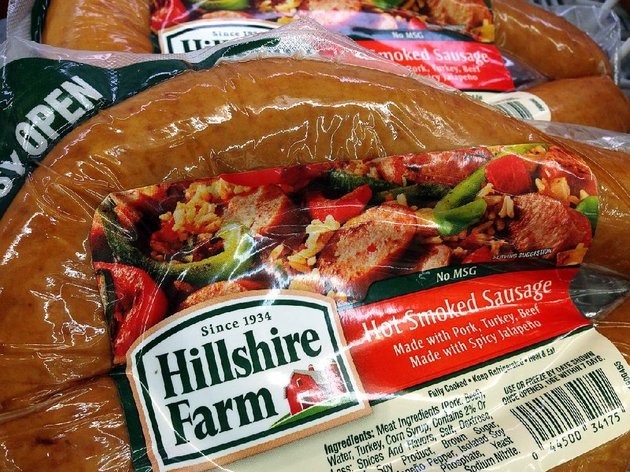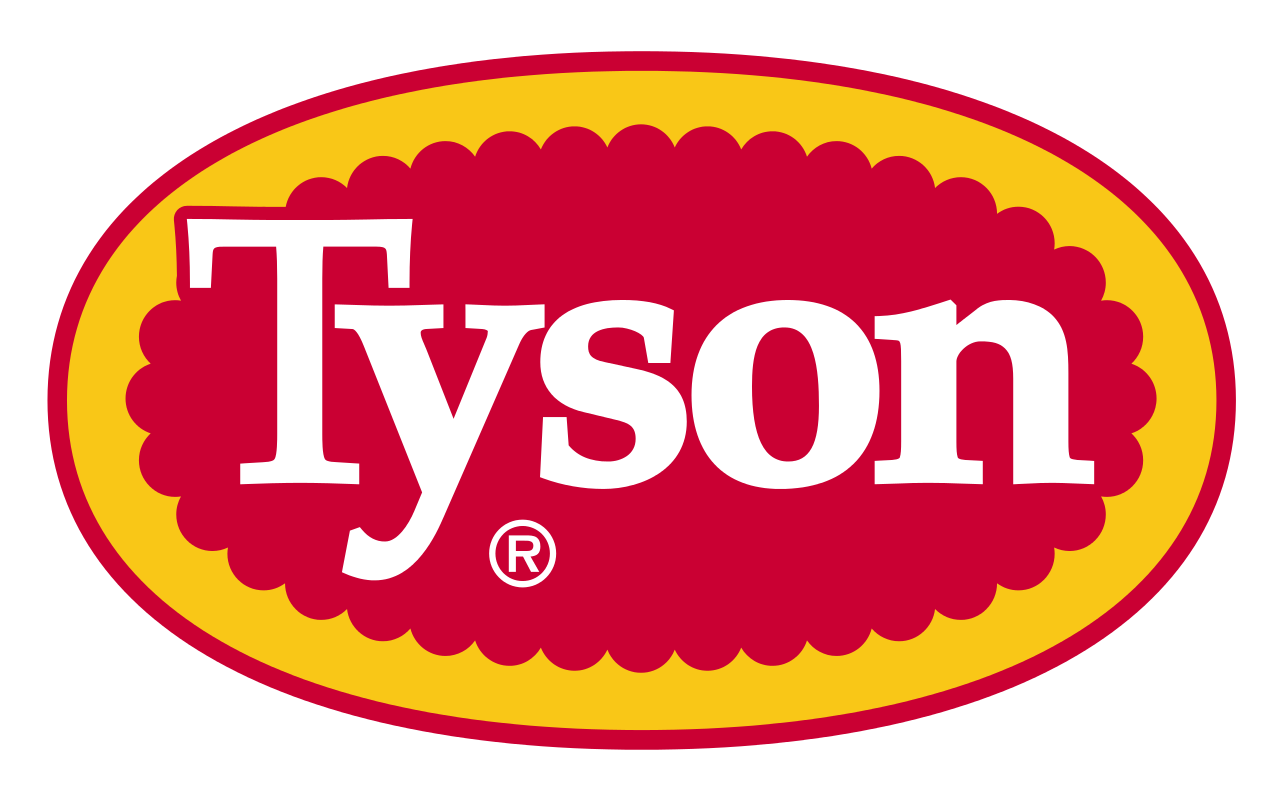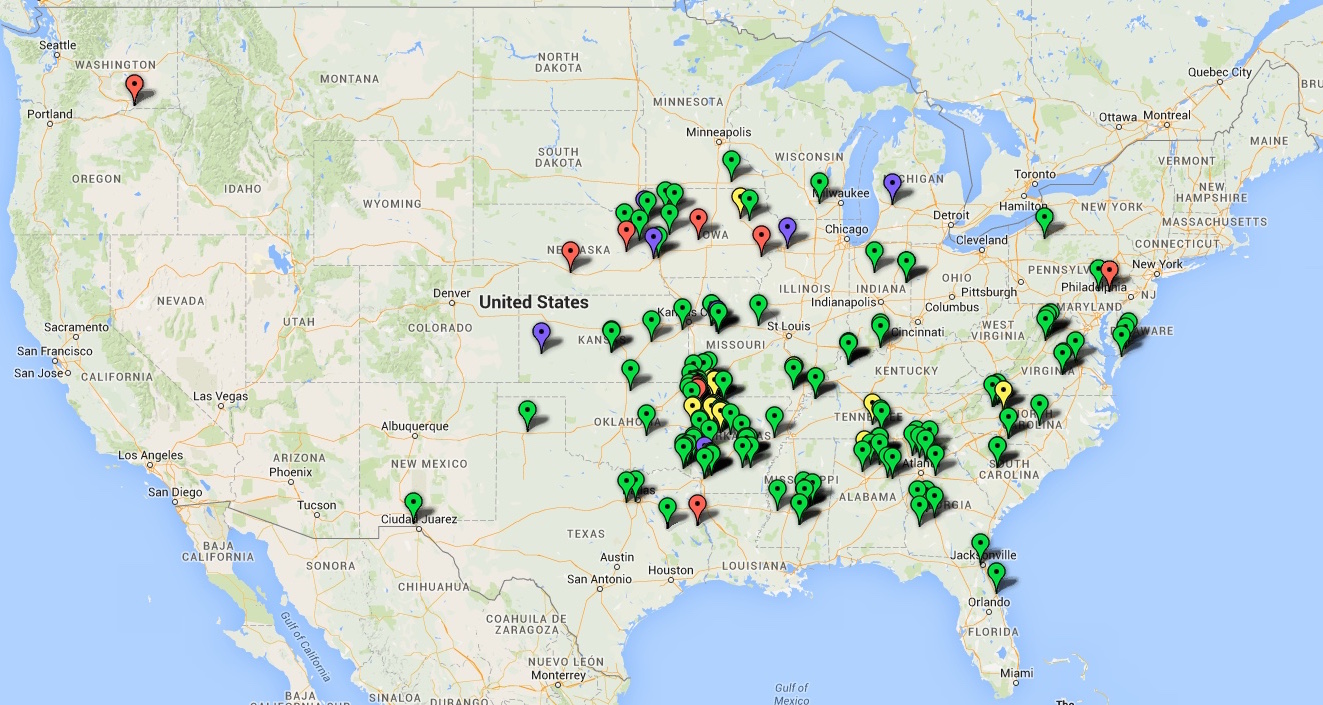Tyson outlasts rival in bid war

Tyson Foods Inc. announced Monday that it had made a binding offer to acquire Hillshire Brands for $63 per share.
After Tyson completes its $8.55 billion purchase, it will again become the largest seller of prepared meats by leveraging brands such as Ball Park, Hillshire Farm and Jimmy Dean to expand its prepared foods segment.
"Although to the outside world this might appear to be happening quickly, I want to assure you that we've been thinking a long time about Hillshire and how it can complement Tyson Foods," said Donnie Smith, chief executive of Tyson Foods, in a conference call. "We prepared ourselves and frankly prepared our balance sheet for this opportunity."
Those brands were almost gobbled up by competitor Pilgrim's Pride and its parent company JBS S.A., currently the largest seller of prepared meats. JBS took the title from Tyson in 2009 after numerous acquisitions.
Pilgrim's started the bidding at $45 per share May 27. Two days later, Tyson fired back with a $50-per-share proposal. On June 1, Pilgrim's Pride made what would be its final offer at $55 per share.
The company announced Monday that it was withdrawing its bid.
"As a disciplined acquirer, we determined that it was in the best interests of our shareholders not to increase our proposed price of $55.00 per share in cash," said Bill Lovette, Pilgrim's CEO, in a statement. "Pilgrim's will maintain its strong focus on operational excellence and shareholder value, while pursuing acquisition opportunities that advance our stated strategy."
Pilgrim's Pride and Tyson Foods were willing to go to lengths to acquire Hillshire because prepared foods and name brands draw higher profit margins than commodity products, according to industry analysts.
Hillshire has some of the top brands in the industry. In terms of market share, Jimmy Dean leads in breakfast sausages and frozen protein breakfasts, Ball Park is No. 1 in hot dogs, and Hillshire Farms is No. 2 in branded lunch meat.
Smith said Tyson was especially interested in expanding its breakfast offerings.
"Brands like Hillshire and Jimmy Dean and Ball Park, you know, they don't become available very often," Smith said. "We're purchasing these assets not for what they are today, but for their potential to create additional value over time."
Prepared foods account for about 9 percent of Tyson's sales and 5 percent of its operating income, according to an investor report.
The addition of Hillshire Brands to that segment would double the prepared-food segment's contribution to revenue and quadruple the segment's contribution to operating income. Prepared foods would then account for 18 percent of Tyson's revenue and 20 percent of its operating income.
"We've been very focused on both prepared foods and value-added chicken as the accelerators in our growth strategy," Smith said.
Smith said he expected about $300 million in cost reductions after three years from cooperation between the two companies. He identified the companies' distribution, purchasing and marketing operations as potential targets, but said it was too early to know if jobs would be created or lost.
"This deal is about taking a great asset and growing it, not simply eliminating costs," Smith said.
During the conference call, analysts were concerned about the price Tyson paid. Smith said the company was looking into raising equity and rebalancing its investments to pay down the debt quickly.
"I think that the price of the transaction is a lot higher than what any of us could have imagined it going to," said Robert Moskow, an analyst at Credit Suisse, during the investor conference call.
Tyson's stock was down more than 6.5 percent in trading Monday.
In an interview, Kenneth Shea, a senior equity analyst at Bloomberg Industries, said time will tell if the deal was worthwhile.
"Tyson knew it was going to have to stretch. They said they were looking at this deal for [a] while," he said. "They're paying a lot for this asset, but in the company's words, these brands don't come up very often."
To accept Tyson's bid, Hillshire must first terminate its plan to buy Pinnacle Foods Inc. In order to do so, Hillshire must pay a $163 million breakup fee.

